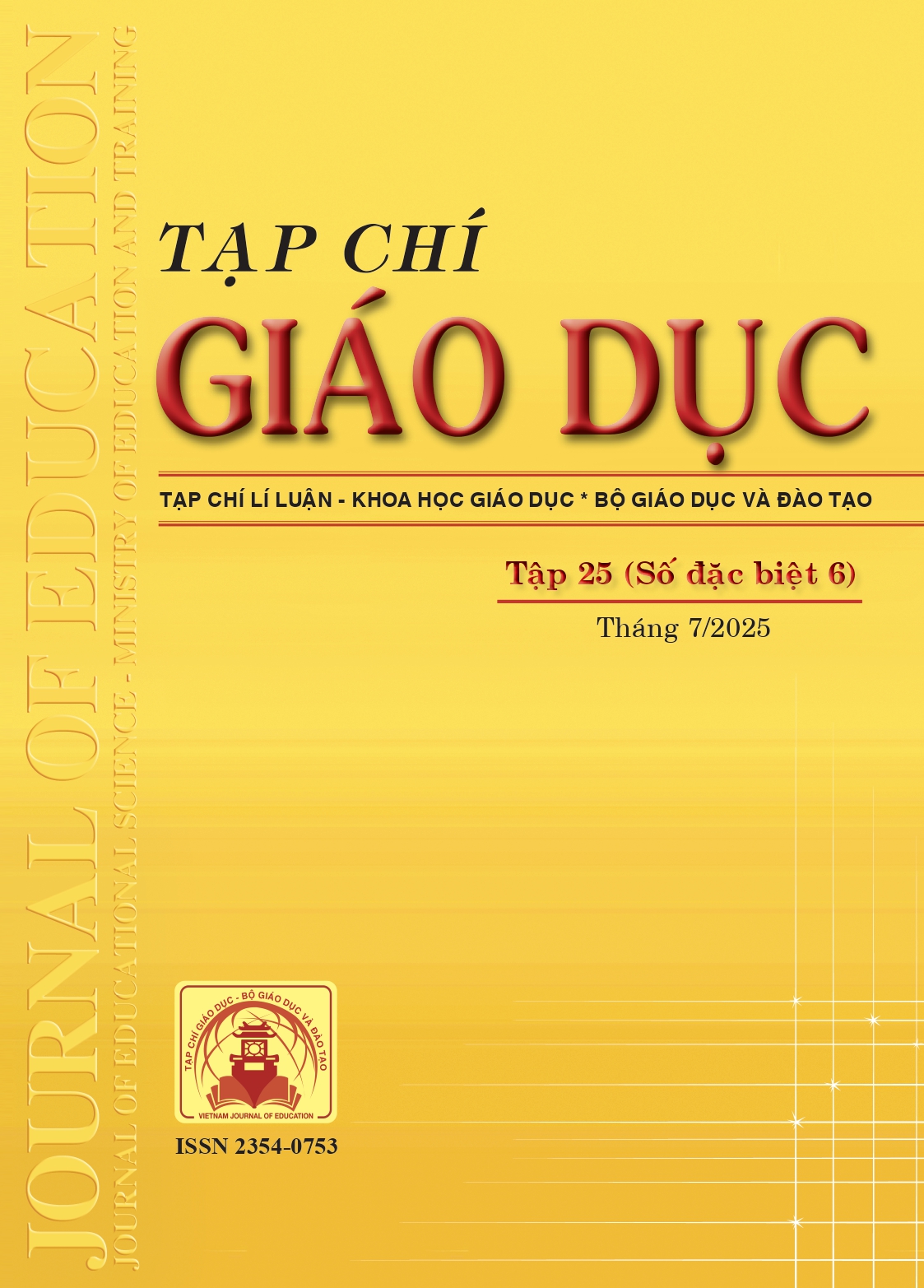Vận dụng học thuyết tải nhận thức để cải thiện phương pháp dạy học học phần viết luận cho sinh viên khối kĩ thuật
Tóm tắt
Based on solid evidence, scientists have developed and refined the cognitive load theory as a principle that provides theoretical and empirical support for teaching models. Therefore, this article describes cognitive load theory and its significance for improving the quality of essay writing instruction at a technical school. From the perspective of cognitive load, the author recognizes that teaching methods are most effective when they are designed in accordance with how the human brain learns and utilizes knowledge. The next part of the article highlights its significance for specific aspects of writing instruction, providing instructors with an evidence-based foundation to enhance students’ cognitive abilities in essay writing. The research results serve as a basis for language lecturer to identify the limitations in their teaching methodology to improve methods to increase the number of articles published in reputable journals; thereby helping students enhance the quality of their essays.
Tài liệu tham khảo
Anderson, L. W., & Krathwohl, D. R. (2001). A Taxonomy for Learning, Teaching and Assessing: A revision of Bloom’s Taxonomy of educational objectives. New York: Longman.
Bakry, M. S., & Alsamadani, H. A. (2015). Improving the persuasive essay writing of students of Arabic as a Foreign Language (AFL). Effects of self-regulated strategy development. Procedia - Social and Behavioral Sciences, 182, 89-97. https://doi.org/10.1016/j.sbspro.2015.04.742
Brown, H. D. (2000). Teaching by principles: An Interactive approach to language pedagogy (Second Edition). New York: Pearson.
Celik, I., Dindar, M., Muukkonen, H., & Järvelä, S. (2022). The promises and challenges of artificial intelligence for teachers: A systematic review of research. TechTrends, 66, 616-630. https://doi.org/10.1007/s11528-022-00715-y
Ceylan, N. O. (2019). Student perceptions of difficulties in second language writing. Journal of Language and Linguistic Studies, 15(1), 151-157. https://doi.org/10.17263/jlls.547683
Cumming, A. (1998). Theoretical perspectives on writing. Annual Review of Applied Linguistics, 18, 61-78. https://doi.org/10.1017/S0267190500003482
DeLeeuw, K., & Mayer, R. (2008). A comparison of three measures of cognitive load: Evidence for separable measures of intrinsic, extraneous, and germane load. Journal of Educational Psychology, 100(1), 223-234. https://doi.org/10.1037/0022-0663.100.1.223
Geary, D. C. (2012). Evolutionary educational psychology. In K. R. Harris, S. Graham, T. Urdan, C. B. McCormick, G. M. Sinatra, & J. Sweller (Eds.), APA educational psychology handbook, Vol. 1: Theories, constructs, and critical issues (pp. 597-621). American Psychological Association. https://doi.org/10.1037/13273-020
Gerjets, P., Scheiter, K., & Cierniak, G. (2009). The scientific value of cognitive load theory: A research agenda based on the structuralist view of theories. Educational Psychology Review, 21(1), 43-54. https://doi.org/10.1007/s10648-008-9096-1
Ginting, D., & Barella, Y. (2022). Academic writing centers and teaching academic writing at colleges: A literature review. Journal of Education and Learning, 16(3), 350-356. https://doi.org/10.11591/edulearn.v16i3.20473
Kwan, L. S. L., & Yunus, M. M. (2014). Cohesive errors in writing among ESL pre-service teachers. English Language Teaching, 7(11), 130-159. https://doi.org/10.5539/elt.v7n11p130
Maarof, N., Yamat, H., & Kee, L. L. (2011). Role of teacher, peer, and teacher-peer feedback in enhancing ESL students’ writing. World Applied Sciences Journal, 15, 29-35.
Margaret, M., Felicity, O., Michael, B., & Carole, A. (2009). Top tips for IELTS academic. University of Cambridge ESOL Examinations.
Martin, A. (2016). Using Load Reduction Instruction (LRI) to boost motivation and engagement. British Psychological Society, Leicester UK.
Oshima, A., & Hogue, A. (2006). Writing academic English (Fourth Edition). London: Pearson Longman.
Peterson, L., & Peterson, M. (1959). Short-term retention of individual verbal items. Journal of Experimental Psychology, 58(3), 193-198. https://doi.org/10.1037/h0049234
Roxas, M. J. (2020). Exploring senior high school students’ academic writing difficulties: Towards an academic writing model. IOER International Multidisciplinary Research Journal, 2(1), 10-19. https://doi.org/10.54476/iimrj376
Sweller, J. (1988). Cognitive load during problem solving: Effects on learning. Cognitive Science, 12(2), 257-285. https://doi.org/10.1016/0364-0213(88)90023-7
Sweller, J., van Merrienboer, J., & Paas, F. (1998). Cognitive architecture and instructional design. Educational Psychology Review, 10(3), 251-296. https://doi.org/10.1023/A:1022193728205
van Merriënboer, J. J. G., Kirschner, P. A., & Kester, L. (2003). Taking the load off a learner’s mind: Instructional design for complex learning. Educational Psychologist, 38(1), 5-13. https://doi.org/10.1207/S15326985EP3801_2
Zamin, A. A., Kassim, R., & Kamaruddin, M. F. (2018). Academic writing at tertiary level: Challenges and strategies for novice teachers. The Social Science, 13(3), 650-656.
Đã Xuất bản
Cách trích dẫn
Số
Chuyên mục
Giấy phép

Tác phẩm này được cấp phép theo Ghi nhận tác giả của Creative Commons Giấy phép quốc tế 4.0 .












